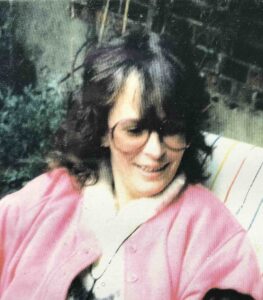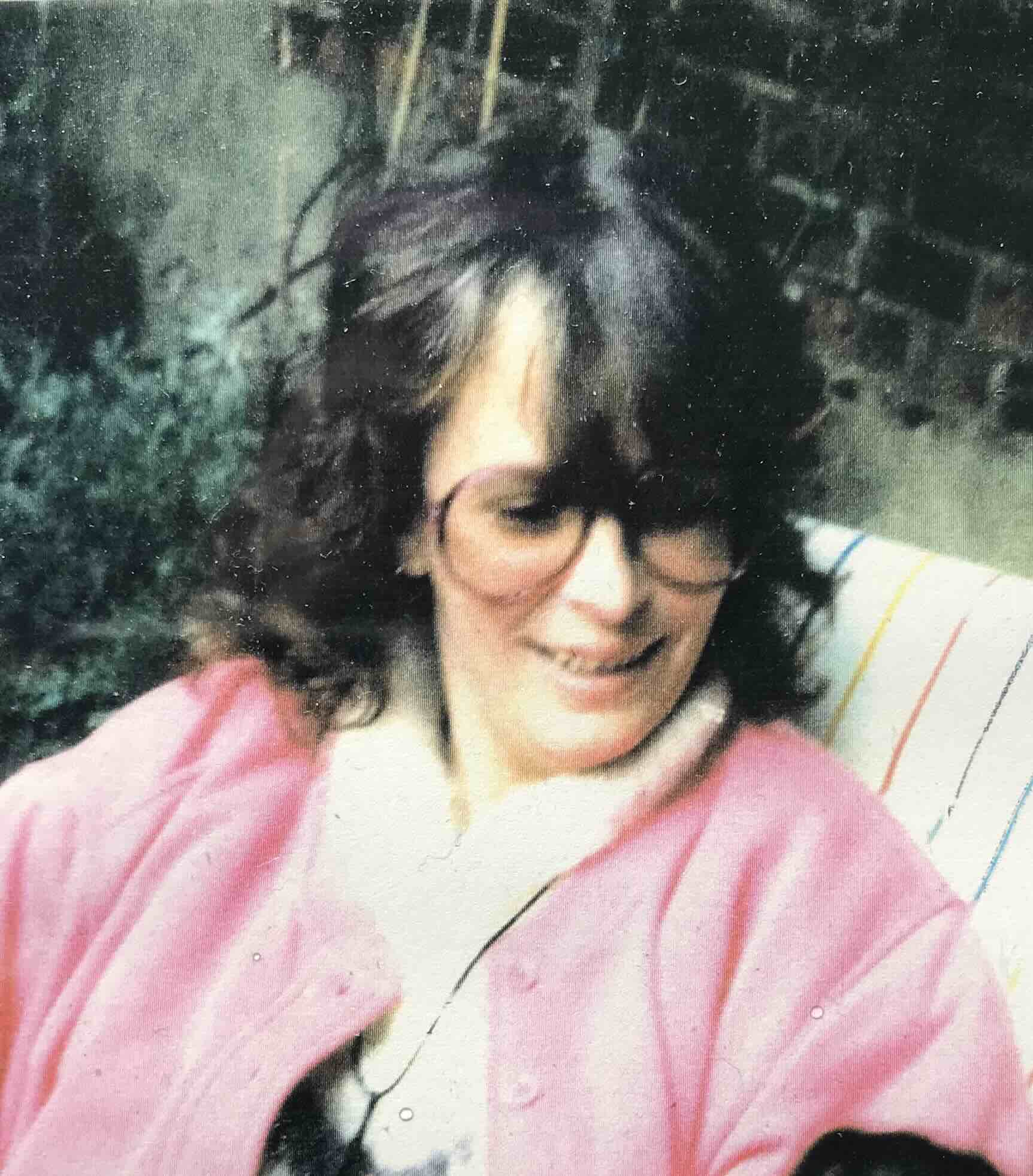
Elizabeth Danciger
Source: Sue Young Collection
Elizabeth Nash Danciger B.A. R.S.Hom MRadA (16 October 1947 – 19 February 1994) was an American-born homeopath who practiced in London. She was a founder member of the Society of Homeopaths (SoH), and was the Director of The Open Circle School of Homeopathy in London.
Danciger’s colleagues in the SoH included Misha Norland, Peter Chappell, Robert Davidson, Martin Miles and Sarah Richardson.
Danciger was a student of homeopath John DaMonte and, according to Peter Morrell, of Thomas Lackenby Maughan.
Like her teacher, DaMonte, Danciger was also interested in Radionics and became a qualified practitioner, before retiring in 1990 to concentrate exclusively on homeopathy.
Before training as a Homoeopath, she was an artist and art historian, and a teacher of both. She later became a teacher of Homeopathy and the history of medicine. One of her London homeopathy students was Sue Young.
Elizabeth Danciger was born in Memphis, Tennessee, on 16 October 1947, the daughter of Jacob A. Danciger M.D. (1914 – 1953) and artist Leila Nash Ward (1916 – 2006).
Danciger lived in Europe from early childhood, and spent the greater part of her life in England.
In April 1966, Elizabeth Danciger married William J. Merrington, in Hove, Sussex.
Elizabeth Danciger was perhaps best known for her book, Homeopathy: From Alchemy to Medicine, first published in 1987. Danciger researched and completed this book under the supervision of two of the most eminent scholars of early modern western esotericism, Dame Frances Yates (1899 – 1981), a Fellow at the Warburg Institute, and Pathologist-turned-Medical Historian, Walter Pagel (1898 – 1983).
In her book, Danciger suggested the influence of Swiss physician Theophrastus von Hohenheim, more commonly known as Paracelsus (1493 – 1541), and other Renaissance alchemists, on Samuel Hahnemann (1755 – 1843), despite his own assertions to the contrary. One example she offered to illustrate her thesis was the homeopathic law of similars, a principle dating back to Greek physician Hippocrates (c. 460 – c. 370 BCE), but revived by Paracelsus.
Elizabeth Danciger died in London of cancer on 19 February 1994. She was laid to rest beside her father, Jacob, at Temple Israel Cemetery in Memphis, Tennessee.
Her Obituary was in the 1994 edition of the Radionic Journal (40:2) 26.
It is with sadness that we report the death of Liz Danciger on 19th February, 1994, aged 46. Born in Memphis, Tennessee on 16th October 1947, and educated in Italy, Liz was an art historian, artist and teacher before studying Homoeopathy and Radionics. She studied with the late John Damonte before joining the Association in May 1979, and then with the School of Radionics and was elected to Qualified Membership in October 1983. In 1990 she became a Retired Qualified Member and then concentrated on practising and teaching Homoeopathy (Liz was one of the group which founded The Society of Homoeopaths of which she was a Registered Member). Her book, The Emergence of Homoeopathy, published in 1987, was the result of long and careful research.
At the Service, held at Golders Green Crematorium on 24th February, an appreciation was read by Liz’s friend and colleague, Sarah Richardson, from which the following extracts are taken:
Lizzie was intense and wild and passionate, someone who lived the fullness of the agony and ecstasy of human experience… She burned very brightly and achieved a great deal, encouraging students and colleagues in their endeavours as well as attending to her own work …
personally, professionally and/or politically…she had the courage to raise matters which her burning perception and intuition had identified as needing attention, even when she knew she was likely to get an hostile reception and knew how deeply hurt she would be by others’ reactions.
She had a rigorous self-discipline when involved in her own art, studies, research, writing and the care of her patients. She would leave no stone unturned to create things which kept integrity with her vision. But her body could not keep up with the creativity of her mind. Now this chaotic/creative storm which swept through so many people’s lives has burnt itself out, leaving… a memory of the fun, love, loyalty and vision which was at her centre…
Those who knew Liz will long remember her and many will have reason to be grateful for having known her. We send our sympathy to her family and close ones in their loss.
Select Publications:



Fabulous biography Mel